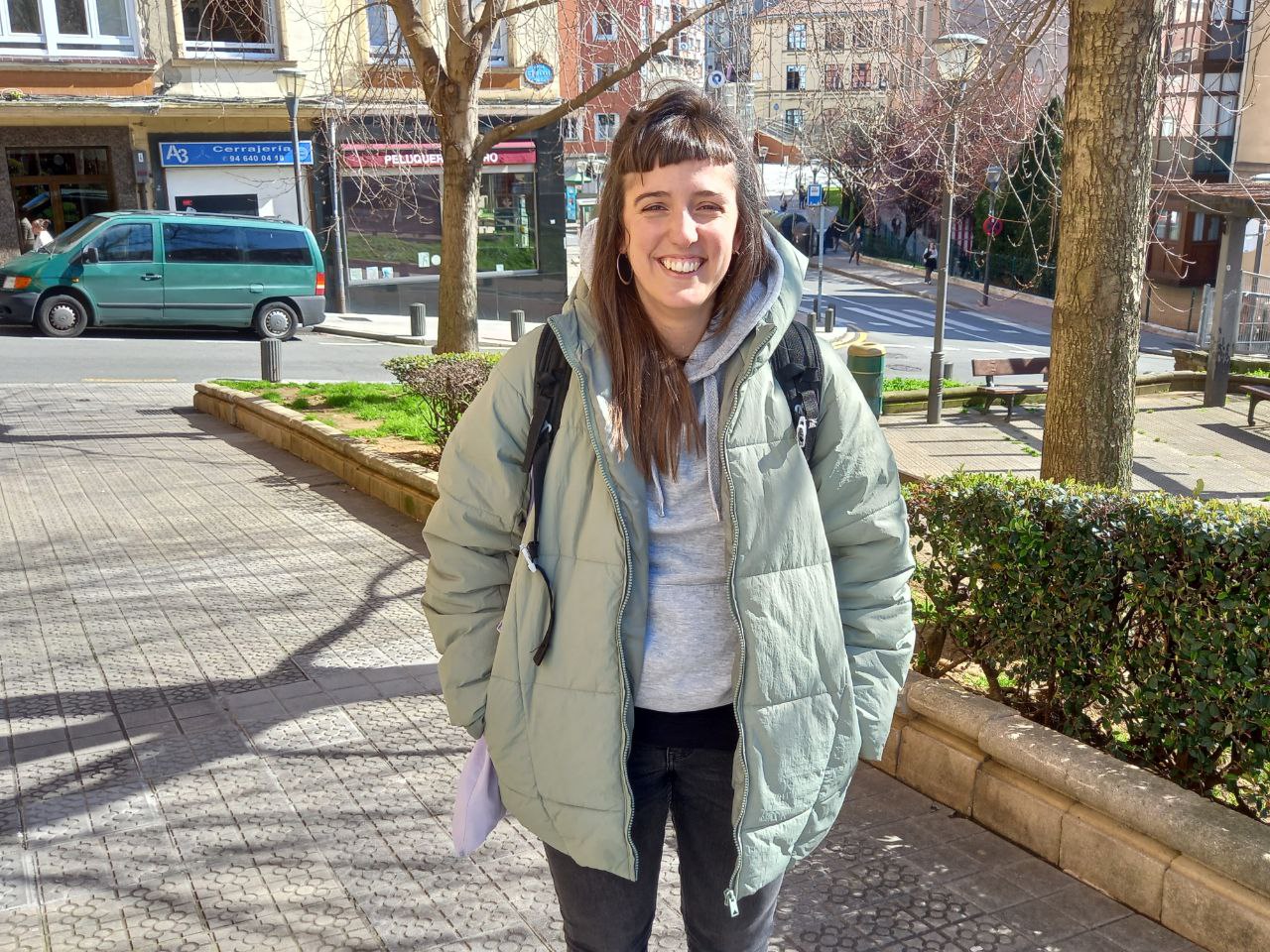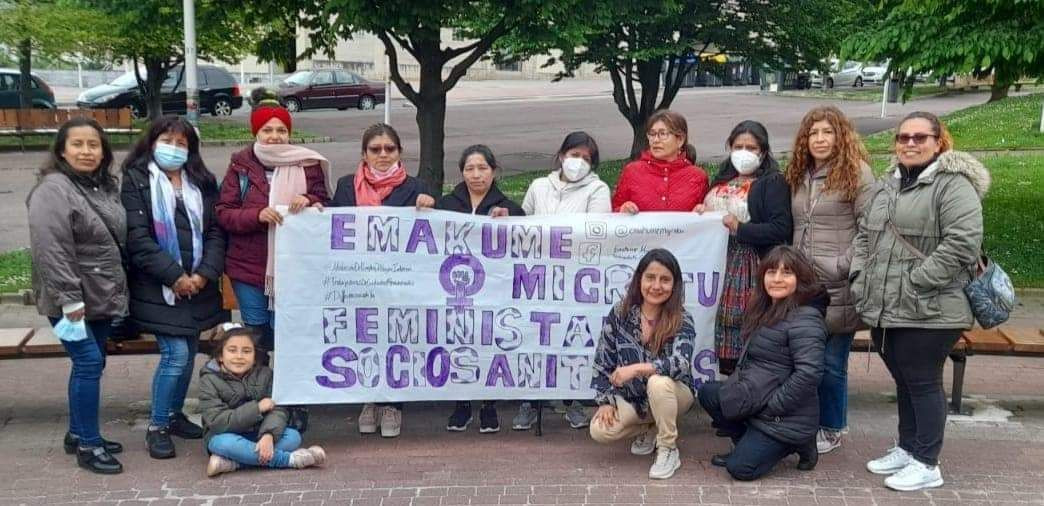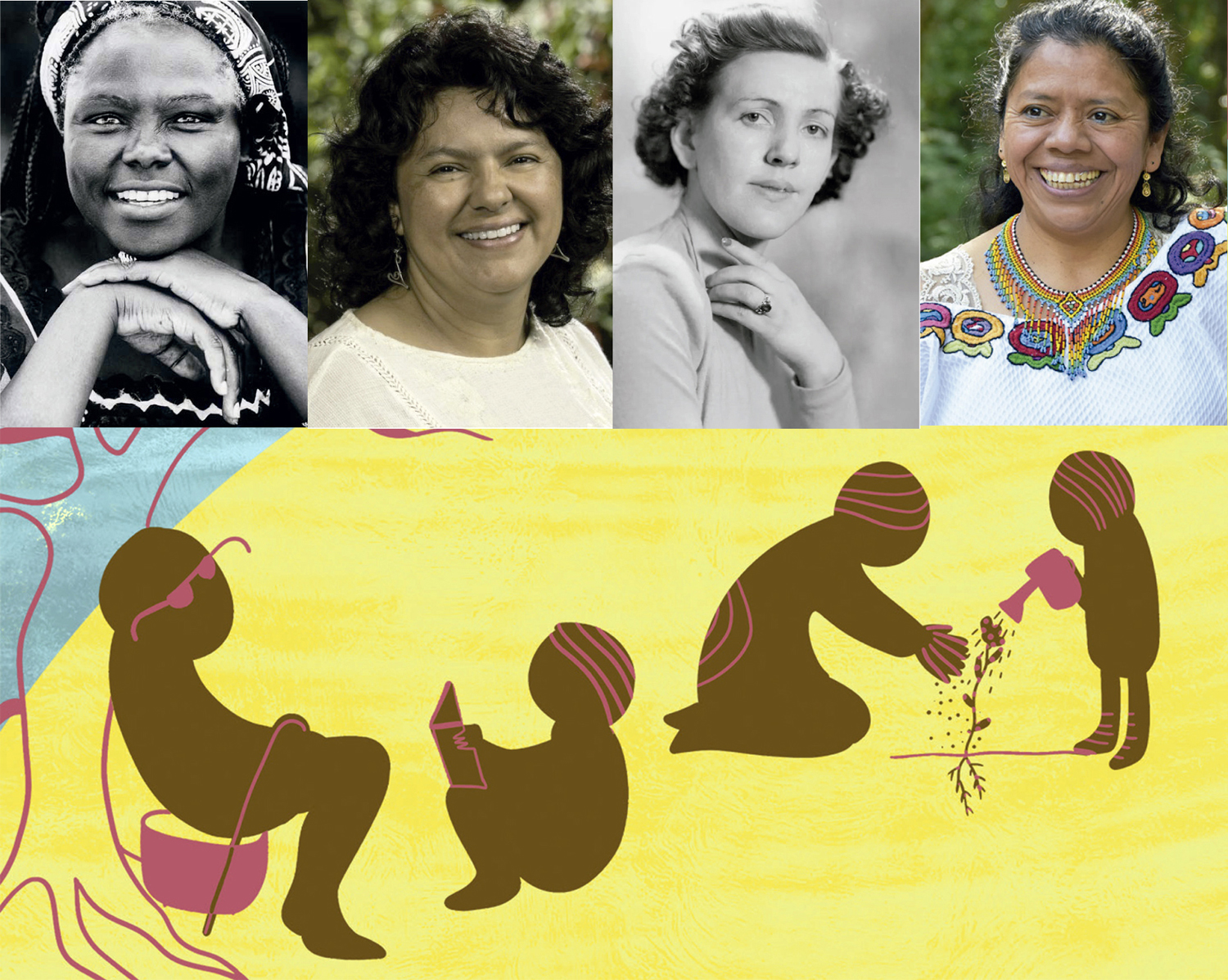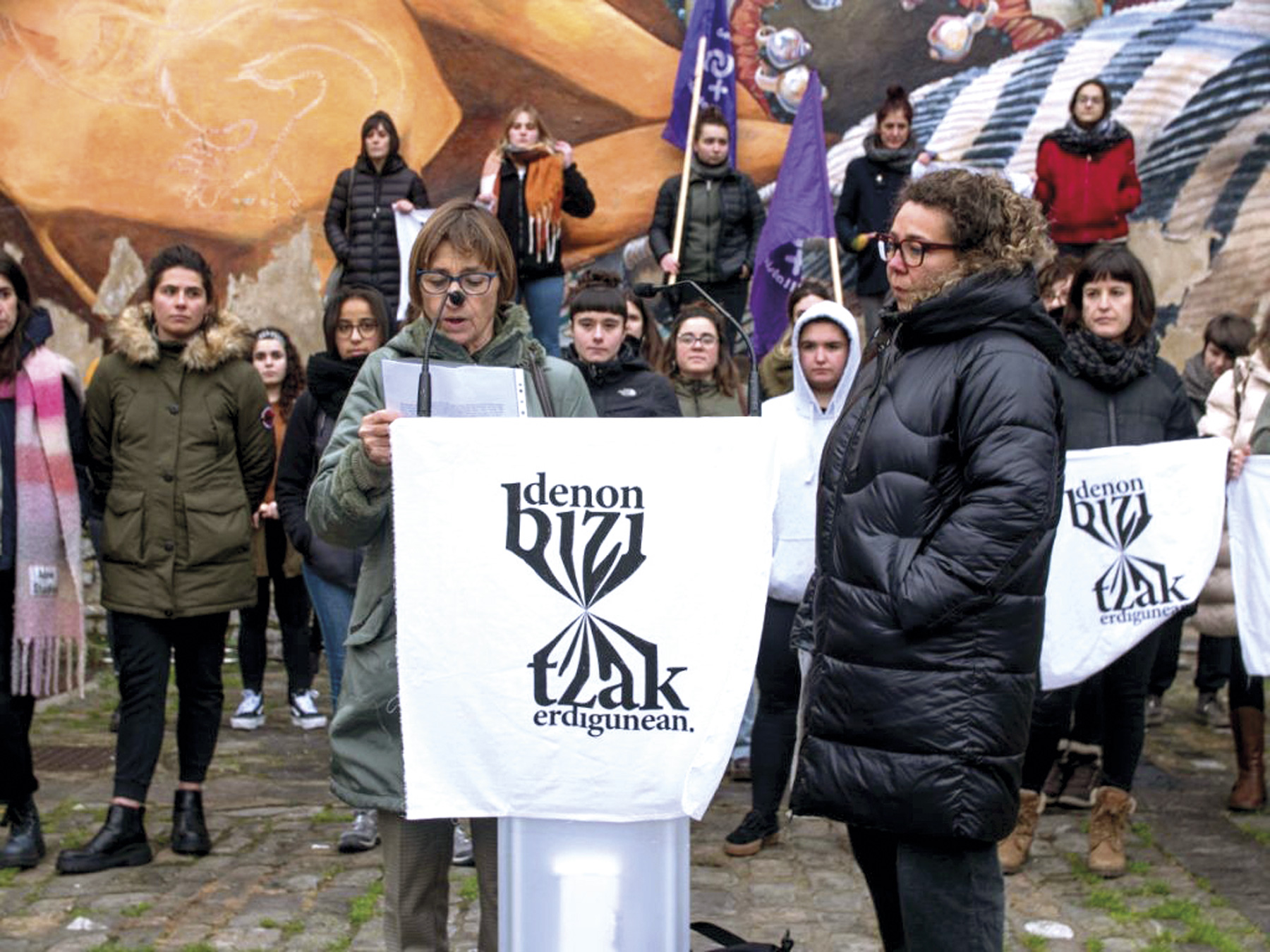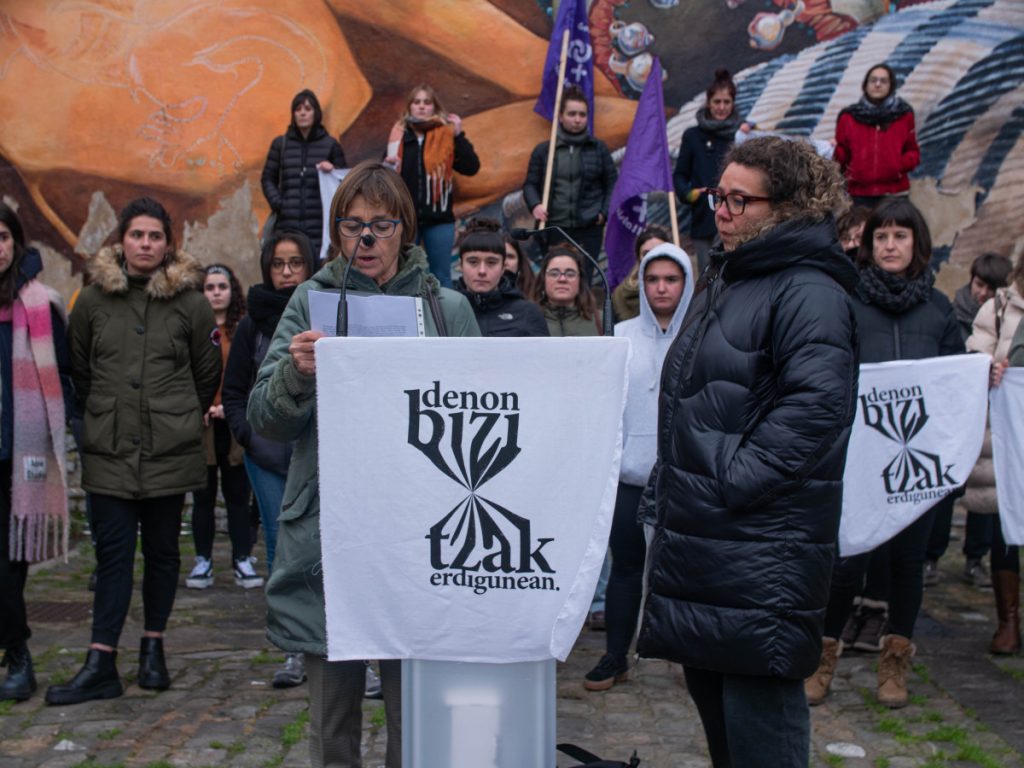The feminist movement goes to the street "to crack the system"
- The feminist movement has explained that COVID-19 has emerged as a "crisis of different dimensions" and has had a direct impact on feminized spaces. "This crisis did not start with the pandemic and now we are not going to be silent in the Feminist Movement of the Basque Country," he added. The proponents have advocated public and community care, as well as equal treatment. Demonstrations took place in the afternoon in Donostia-San Sebastian, Vitoria-Gasteiz, Bilbao and Pamplona/Iruña. In Baiona, the event took place at 12:00.

The Euskal Herria Feminist Movement gave a press conference in late February to explain what will be March 8 of this year. The members of the movement recalled that two years ago "since we made the plante and claimed the need to centralize lives" with the feminist strike and a year ago since March 8: "Since then, the context of the plague caused by COVID-19 has highlighted the crises of the different dimensions of this system. What has recovered is not just a health crisis."
Under the motto "everything changes, everything changes, everything changes", mobilizations have been carried out in many towns, even in the capitals. In Baiona, at 12:00 hours they have started from the hospital; Jenofa Berhokoirigoin has made the chronicle: "Since Baiona they have denounced that the COVID-19 crisis has exacerbated the discrimination and oppression women have suffered."
Amaia Lekunberri reported in this chronicle of the mobilizations that have taken place throughout the day in Bilbao: "The streets of Bilbao have been invaded by a feminism that has been firmly reaffirmed in anti-capitalism and anti-racism." Among other issues, he stressed: "The decolonial and anti-racist perspective has played a fundamental role in the mobilizations that have taken place in the Biscayan capital, beginning with the action that has begun the programme".
In Pamplona/Iruña there have also been mobilizations at 19:00 and 20:00 hours in the neighborhoods and population centers. Kattalin Barber has been the author of the story, in the article "We Come to Change Everything". Barber explained that "the decentralization of the calls has been a priority for the movements and streets of women in Navarra, in 66 acts, alluding to the need to focus life on towns, neighborhoods and cities. The epidemic has highlighted the need to place surveillance and life at the centre of public policies. It is not new: the most oppressed sectors are more oppressed. And the sectors that have put their body at the forefront of the coronavirus pandemic are very feminized. It is women who are in the front line: washing, caring, caring, healing."
In Vitoria-Gasteiz the demonstration started at 19:00 hours from Plaza San Antón in the capital of Alavesa. Leo Bueber has made the chronicle in the article "We claim the system from sexual dissent, from the recognition of care and questioning our privileges": "Since the beginning of the health crisis caused by COVID-19, it has become clear what feminisms are shouting: women* (and mostly migrated women) are the ones who perform essential care tasks to maintain life. The situation generated by the health crisis has also increased the exploitation of domestic and care workers, the dismissal of many people, the situation of serious housing and lack of independence, the loss of income of sex workers, the free exercise of violence by the aggressors against women who live with them and their sons and daughters".
In Donostia-San Sebastian the demonstration started at 18:30 hours from the Old Tunnel. Oihane Arretxea explained in his chronicle that "in this crisis of care, aggravated by the pandemic, the manifestation of San Sebastian has denounced that the racist structure and the absence of a public surveillance system tightens the supranational chain of custody: “In this structural crisis of surveillance, how do you solve the issue at the whites’ house? Using the white privilege and the superior hierarchy granted to us by the racist and colonial structure, in other words, exploiting migrated and racialized women'. Here we leave you the photo gallery prepared by Dani Blanco with pictures of the Donostia manifestation.
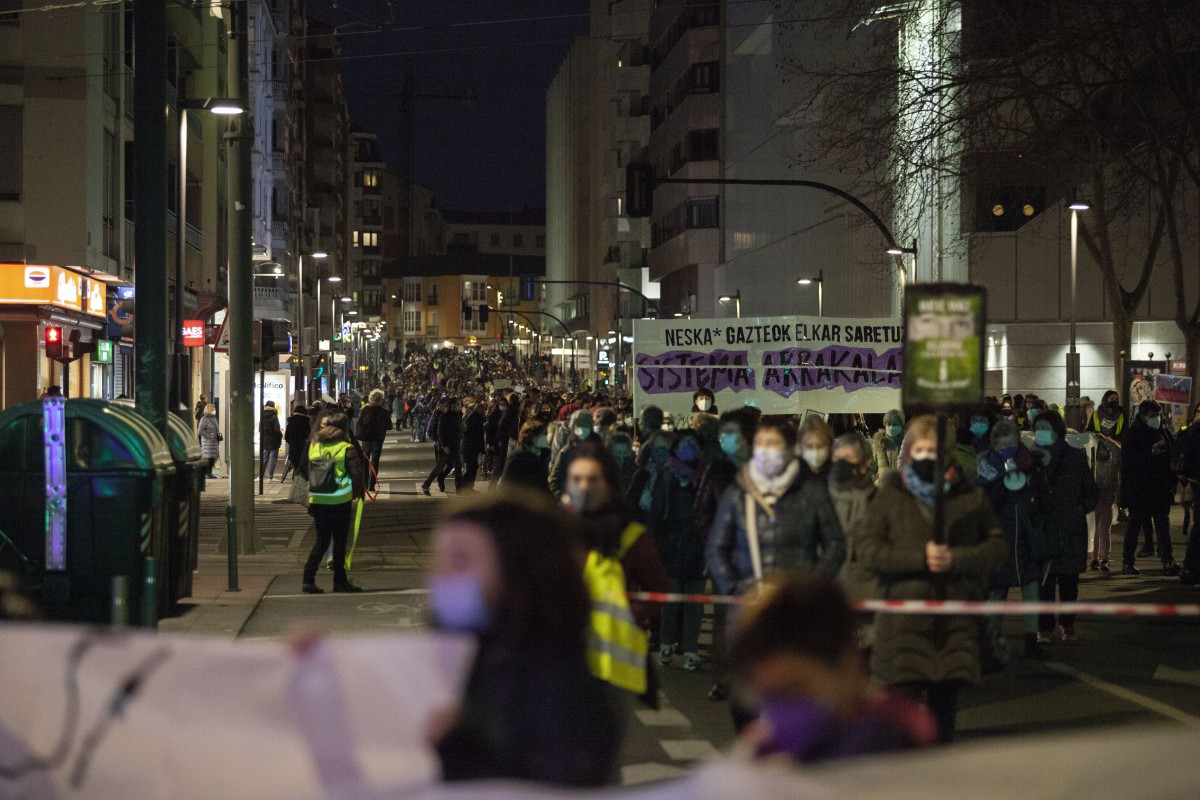
Health measures, discussed in recent days
Following the announcement of the mobilizations, the Basque Government's Minister for Equality, Justice and Social Policies, Beatriz Artolazabal, asked that on 8 March there should be no "mass demonstrations" because the epidemiological situation remains "very serious". The same has happened in the Spanish State. In this sense, the Minister of Health, Carolina DARIAS, also referred to the manifestations of this type that "would not understand them".
On the contrary, members of the feminist movement have decided to keep the call and have left the street, with all the security guarantees put in place. Thus, for example, the demonstrations have gone through the broader avenues: "Health prevention measures and mobility limits make the usual forms of mobilization difficult, but we are going to look for a way to make the street a whistle."
At the press conference, they highlighted the situation of thousands of women, who "had to leave the market for care", especially in the area of working women in an irregular situation. "To end the capitalist, heteropatriarchal, racist system, we have to organize ourselves into feminism and keep fighting collectively," he added. Precisely to collectivize the responsibilities of sustaining lives and radically change the power relations".
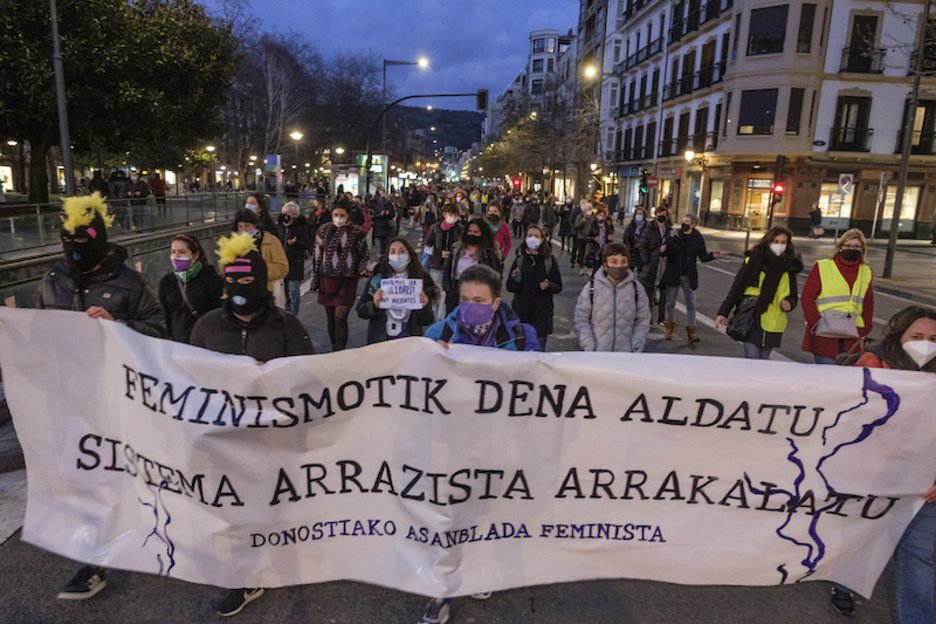
The elegant old woman crossed over our husband's arm. Known from sight, I saw that I was a little wrong, the strokes of age. A real lady eibarresa: a pearl necklace, which with her hair carved and proud, being Friday, knew she was in the morning in the hairdresser. This is a very... [+]
In Euskal Herria, we are talking about the care model. We continue to denounce privatization by claiming the need for a public system. We are building alliances to eradicate the racist system. We are questioning models of governance and demanding other models. We have the... [+]
I've sung a version of Zea Mays' famous song for my own colco. March has gone and I have named him, although I know he has little original. The month of April has come, and I promise, really, that I did not want to talk about this. March purple is an overload for you. Others,... [+]
Although we still do not analyse in depth the collective impact of the pandemic, it is no exaggeration to say that it has left us the demands we have made “our”. One of them is that we must focus care once and for all.
The issue of care is increasingly central in Euskal... [+]
Also on International Women’s Day, the feminist Roma want to be visible and contribute to the integration of the fight against racism in the feminist movement. To this end, it is essential to make known the realities of racialised women and, in particular, gypsies. Otherwise,... [+]
Milaka emakumek hartu dituzte kaleak Euskal Herriko Mugimendu Feministak deitutako Martxoaren 8ko mobilizazioetan. Zaintza sistema publikoa, eta antolakuntza eta borroka feministaren beharra izan dira aldarri komunak.










